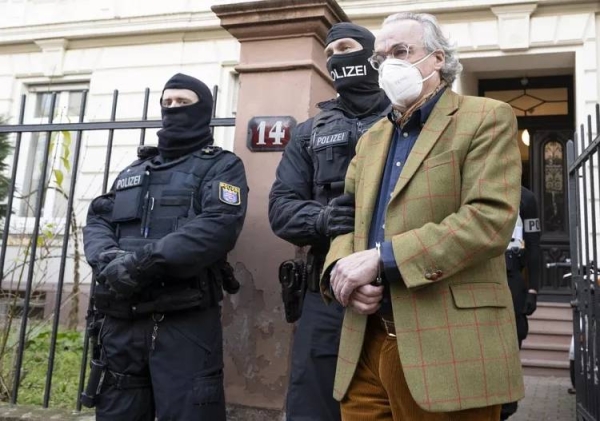The trial of the alleged leaders of an extremist plot to overthrow Germany’s government has begun in Frankfurt. The case involves more than two dozen suspects and 260 witnesses, with the trial expected to continue until 2025. Among the defendants are the self-styled Prince Heinrich XIII and his Russian girlfriend, who planned to install Heinrich as the new emperor of Germany. The group, known as the Reichsbürger or “Reich Citizens” movement, aimed to restore the German Empire and forcibly remove the existing state order. The alleged plot involved storming the Reichstag in Berlin, arresting lawmakers, and displaying Chancellor Olaf Scholz on television in chains.
The group also planned to negotiate a post-coup order with Russia, with Prince Heinrich attempting to contact Russian officials for support. The defendants face charges of belonging to a terrorist organization, with Prince Heinrich and another suspect alleged to be the ringleaders. The group had amassed a significant amount of money and a large arsenal of weapons, bulletproof vests, and handcuffs. Prosecutors say they had lists of enemies to target once they took control of regional and local authorities.
The trial is being held in a special temporary courthouse to accommodate the large number of defendants, lawyers, and media involved. Twenty-six suspects will stand trial, with one man having died before the trial began. The group was arrested in December 2022 following months of monitoring by investigators. German officials have warned that far-right extremists pose the biggest threat to the country’s security, citing previous incidents involving far-right extremists, including the killing of a regional politician and an attempted attack on a synagogue in 2019.
The rise of far-right extremism in Germany has been a growing concern, with incidents such as protests against COVID-19 restrictions and discussions of the deportation of immigrants sparking mass protests. The trial of the alleged coup plotters sheds light on the ongoing threat posed by extremist groups in the country. The case has garnered significant media and political interest, with high-profile defendants including former military officers and a judge with links to the far-right Alternative for Germany party. The outcome of the trial is expected to have far-reaching implications for Germany’s security and political landscape.











